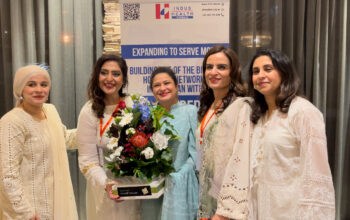Demanding change: How a former Sydney schoolgirl is raising awareness about consent laws
Her mission aims to provide awareness of the issue, especially for young Australians battling their way through one of the most complicated parts of growing up.
Earlier this year Chanel launched an online petition asking for people to support her campaign as well as report their own experiences regarding consent.
Immediately she was inundated with replies, and at last count had received almost 40,000 signatures as well as thousands of testimonies about disturbing sexual abuse.
Alarmingly, many of the stories accused private school boys of inappropriate behaviour, but Chanel says it’s a much bigger issue than even she originally thought.
“It’s not just educating school students, it is literally tipping Australia upside down and trying to awaken everyone to the realisation that we live in a rape culture and that what we’re doing right now is not good enough,” she told 60 Minutes.
After Chanel’s petition took off so spectacularly, NSW Police launched Operation Vest, allowing victims to share their stories with police without necessarily instigating a criminal investigation.
‘I didn’t know that rape could happen to me in an environment with someone that I knew’
It’s a unique strategy which police hope will also help them identify repeat offenders.
“From February to now, there’s been a 54 per cent increase in reporting across the board in NSW, which is massive,” said Detective Superintendent Stacey Maloney, Commander of the NSW Child Abuse and Sex Crimes Squad.
“I don’t think we’ve seen reporting like this, in terms of an increase.”
At the heart of Chanel’s campaign is the harrowing story of her friend, Carola Dixon, who was raped at a party when she was 15 years old.
“I thought that being raped meant that somebody comes and forces you to do this thing and afterwards you’re sort of bleeding and you’re covered in bruises and you have to call the police and it’s in a dark alleyway,” Carola explained.
“I didn’t know that rape could happen to me in an environment with someone that I knew. I didn’t know that if I was unable to give my consent, that that meant that I had been raped. I thought that if I had to be screaming and crying, saying, no, no, stop.”
 At the heart of Chanel’s campaign is the harrowing story of her friend, Carola Dixon. (Nine)
At the heart of Chanel’s campaign is the harrowing story of her friend, Carola Dixon. (Nine)
The spike in reports of sexual assaults to NSW Police has been a positive result, however the same can’t be said for the Federal Government’s latest attempt to raise awareness about consent.
Last week its multi-million-dollar campaign was ridiculed for being obscure and clumsy, and such was the backlash, the government was forced to take down two videos from its website because of the confusing content.
‘Where I’ve gotten to now and where Australia has gotten to now as a collective is more than I could’ve ever asked for’
Despite that embarrassment though, the question remains: how hard is it to get the message right?
Chanel argues it’s vital for not only teenagers but all Australians to understand and respect the laws surrounding consent.
“Honestly, from starting this petition, where I’ve gotten to now and where Australia has gotten to now as a collective is more than I could’ve ever asked for. But now that I know what we can do, I’m asking for a lot more.”
 Earlier this year Chanel launched an online petition asking for people to
Earlier this year Chanel launched an online petition asking for people to
support her campaign as well as report their own experiences regarding consent. (Nine)
“We’re at a point in society where we get to choose to continue what’s been happening or where we can choose to actively dispute the cultural norms. And that’s what I’m asking people to do,” she told reporter Sarah Abo.
If this story has raised issues and you would like to speak with someone, there is help available by calling 1800 RESPECT ON 1800 737 732.
If you would like to know more about Chanel’s work, you can visit: https://www.teachusconsent.com/









